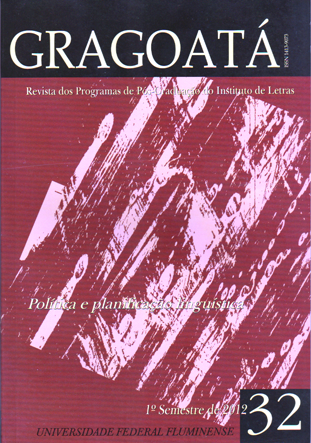A invenção do monolinguismo e da língua nacional
DOI:
https://doi.org/10.22409/gragoata.v17i32.33031Palavras-chave:
, Política linguística, Nacionalismo, BilinguismoResumo
O monolinguismo social, longe de ser um fenômeno espontâneo, frequentemente é o resultado de uma série de operações glotopolíticas de homogeneização de populações falantes de várias línguas, um resultado que é mantido artificialmente pelo Estado. O artigo mostra como esses processos históricos se vinculam à emergência dos Estados-nação e das Nações-estado que se forjaram na Europa a partir do século XVIII, ao tempo que se espalhava a ideologia da ‘língua nacional’.
Downloads
Downloads
Publicado
Edição
Seção
Licença
AUTORIZAÇÃO
Autores que publicam em Gragoatá concordam com os seguintes termos:
Os autores mantêm os direitos e cedem à revista o direito à primeira publicação, simultaneamente submetido a uma licença Creative Commons Atribuição 4.0 Internacional (CC BY 4.0), que permite o compartilhamento por terceiros com a devida menção ao autor e à primeira publicação pela Gragoatá.
Os autores podem entrar em acordos contratuais adicionais e separados para a distribuição não exclusiva da versão publicada da obra (por exemplo, postá-la em um repositório institucional ou publicá-la em um livro), com o reconhecimento de sua publicação inicial na Gragoatá.
A Gragoatá utiliza uma Licença Creative Commons - Atribuição CC BY 4.0 Internacional.











